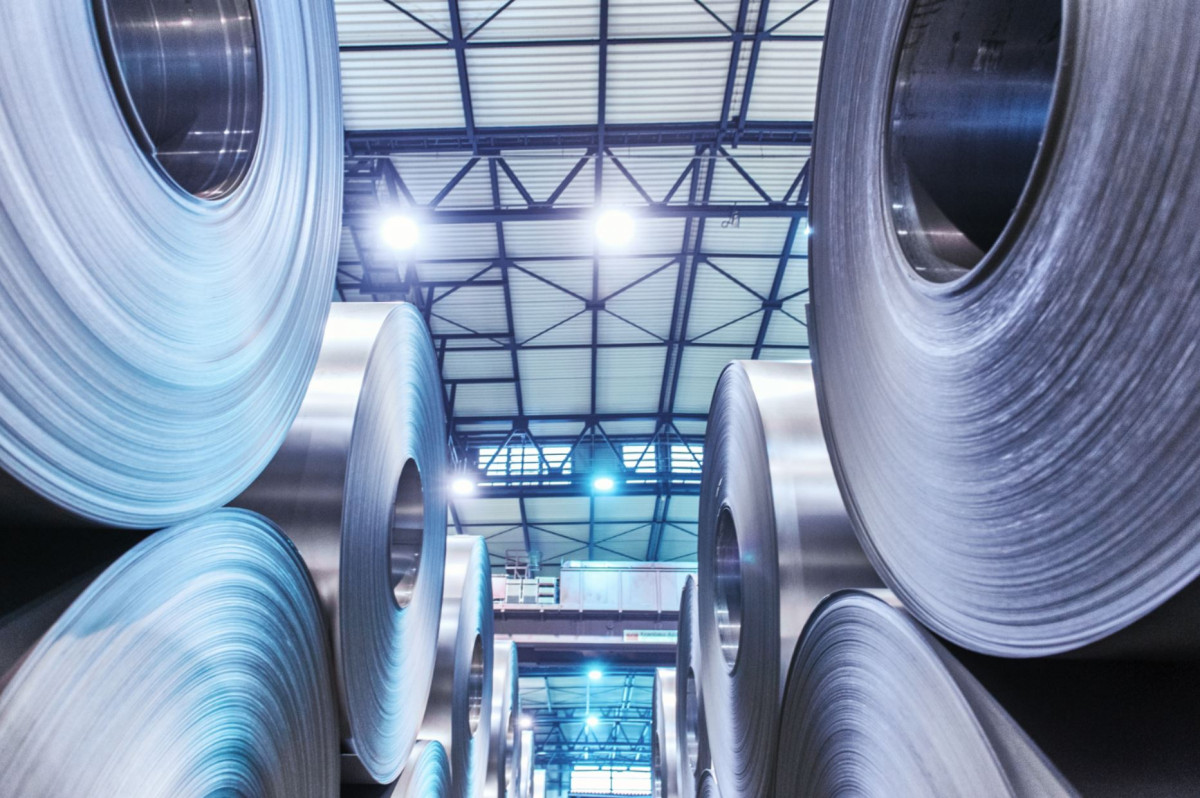German government must leverage opportunities of green procurement – business initiative
The German government should use a planned reform of public procurement rules to give green technologies a much-needed boost, said Sabine Nallinger, head of the industry-affiliated initiative German CEO Alliance for Climate and Economy (Stiftung KlimaWirtschaft). Deutsche Bahn’s 150-billion-euro upgrade of the country’s rail network presents the perfect chance to demand the use of more climate-friendly construction materials such as green steel and cement – if the government acts quickly, she said.
Germany has set up a 500-billion-euro fund for investments in infrastructure and climate action over the coming decade. Through new procurement rules, the fund could boost demand for green steel and cement, but the government has so far refused to seize this chance, Nallinger told Clean Energy Wire. Regulation reform could lead to Deutsche Bahn being required to use green steel and cement in its network overhaul, but Germany’s transport ministry has been slow to act.
“We need this new infrastructure, but we need to build it in a green way. A lot of the money from the fund will go to Deutsche Bahn. When it builds new railway systems, it should use green cement and steel” she said. “Right now, that is not happening.”
Public procurement can be a key driver for industry’s move to climate neutrality as it regulates investments amounting to billions of euros. Low emission steel and cement are much more costly than the high-emission conventional varieties, making them uncompetitive without support. The government is currently debating a draft law reform to speed up public procurement processes and is considering the option of introducing climate criteria. The law reform would allow the government to set binding conditions for the procurement of climate-friendly products.
“This can increase the share of sustainable procurement and strengthen the creation of lead markets for climate-friendly services,” says the draft law seen by Clean Energy Wire.
Deutsche Bahn has argued that it will need 150 billion euros from the fund over the next nine years to upgrade Germany’s railways, on top of its regular budget of 140 billion euros for this period. Modernising the country’s railways is widely seen as essential not only for cutting the transport sector’s carbon emissions, but also for ensuring Germany is ready to move military equipment quickly across the country amid heightened global tensions. Transport accounted for more than one fifth of the country’s emissions in 2024.
Germany cannot support green cement as it supported green steel – Nallinger
As part of the government’s effort to decarbonise the steel industry, it handed out billions of euros in subsidies for green production facilities – but it cannot afford to do the same with cement and other industries, said Nallinger, making it vital that public procurement rules are reformed to require more environmentally friendly materials.
The previous government offered steel companies 7 billion euros to replace their blast furnaces with electric arc furnaces and hydrogen direct reduction plants.
“The government doesn’t have enough money to support all the different industries in the way it supported the steel industry” Nallinger said. “We can’t just give huge sums to a few companies – we need a more systemic approach,” she said.
Germany is Europe’s leading cement producer, making 35 million tonnes of the ubiquitous building material in 2021 - and releasing around two percent of the country’s carbon emissions in the process.
Cement is one of the most difficult industries to decarbonise because its emissions come not only from the burning of fuel to heat limestone in kilns, but also from the limestone itself, which breaks down into quicklime and carbon dioxide when heated. While some companies such as Heidelberg cement are installing carbon capture devices on their facilities, Material Evolution in Britain has created a cement-like material without using limestone, and hopes to partner with incumbent cement companies.
Renewables expansion must continue for industry competitiveness
Nallinger also warned that the government was risking the successful decarbonisation of key industries such as cement and chemicals by casting doubt on the pace and scale of the country’s transition to renewables. The economy minister Katherina Reiche has called for a “reality check” on the pace of their build out, adding that renewables alone cannot supply Germany’s industries with affordable power.
But Nallinger argued that the opposite was true: a rapid rollout of renewables is the best way to lower power prices, giving industries the financial headroom to make investments in decarbonisation, she said.
“All of this discussion from the new government about whether to stop the energy transition is not good for companies” she said. “The only way for us to remain globally competitive is to continue the energy transition, it’s so important for the prices.”



